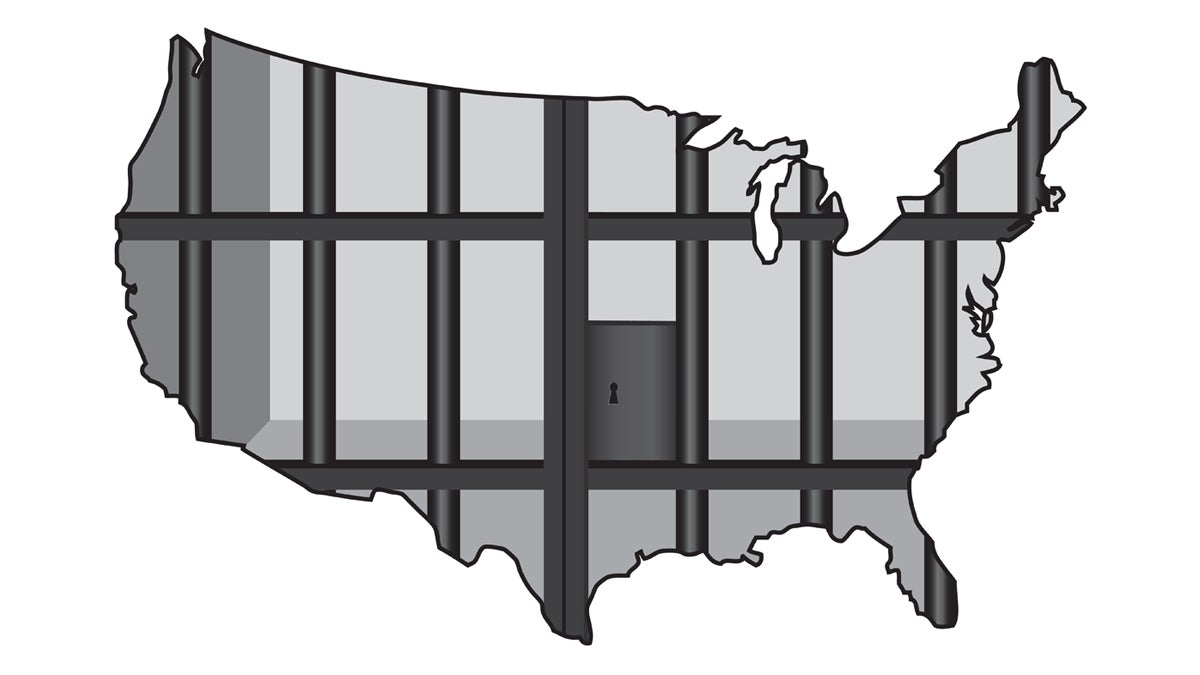Ending mass incarceration takes more than Obama and the NAACP
 Photo via ShutterStock) " title="ssmassincarcerationx1200" width="1" height="1"/>
Photo via ShutterStock) " title="ssmassincarcerationx1200" width="1" height="1"/>
(Photo via ShutterStock)
When President Barack Obama spoke to the National Association for the Advancement of Colored People (NAACP) at its national convention in Philadelphia this week, he proved that the organization remains relevant, even after 106 years.
It is an organization that has dealt with racism in its most virulent forms—from the rise of the Ku Klux Klan and the terrors of lynching, to the systematic disenfranchisement created by Jim Crow laws.
Even in the face of such hatred, the NAACP helped to secure hard won victories on school desegregation, voting rights and civil rights. But over time, those triumphs have eroded.
Just last year, the Supreme Court gutted the Voting Rights Act, allowing states like Texas to pass Voter ID laws that disenfranchise blacks and Latinos. Brown v. the Board of Education, the court case that paved the way for school desegregation, has given way to a public school system where students of color are the majority, but schools remain as segregated as ever.
Perhaps worse, the browning of America’s schools has come at a time when public education funding is dissipating. This, even as America’s prisons are filled to bursting, and the price of mass incarceration has reached $80 billion a year.
We now live in a country where unarmed blacks are killed by police, where poverty in black communities is too often present, and where the legacy of racism, despite tremendous gains, persists.
Those are the realities President Obama confronted when he stepped up to the podium at the NAACP Convention to speak about mass incarceration—a scourge that has become so socially troubling, and so economically unsustainable, that liberals and conservatives have crossed ideological lines to address it.
Like the school funding problem, mass incarceration disproportionately affects people of color. And the cost of that disparate treatment goes well beyond money.
“There are costs that can’t be measured in dollars and cents,” the president said. “Because the statistics on who gets incarcerated show that by a wide margin, it disproportionately impacts communities of color. African Americans and Latinos make up 30 percent of our population; they make up 60 percent of our inmates. About one in every 35 African American men, one in every 88 Latino men is serving time right now. Among white men, that number is one in 214.”
Sadly, mass incarceration and the lack of school funding are not mutually exclusive. They work in concert with one another, to devastating effect, especially in communities of color. It’s a problem that’s not lost on President Obama.
“In too many cases,” he said, “our criminal justice system ends up being a pipeline from underfunded, inadequate schools to overcrowded jails.
“What has changed, though, is that, in recent years the eyes of more Americans have been opened to this truth. Partly because of cameras, partly because of tragedy, partly because the statistics cannot be ignored, we can’t close our eyes anymore.”
The president is right on that count, and that’s what makes me saddest of all. The ills he pointed out while speaking from the cradle of Liberty, are all too evident right here in Philadelphia.
Our schools are underfunded, our jails and prisons are full, and our children are systematically fed into a system that callously steals their freedom.
We must do better. But doing better doesn’t begin with a national convention, or a speech by a President. No, doing better is dependent on all of us living out small moments in our homes, with our children, in our schools.
It requires living each moment with an abiding belief that our children deserve better than prison, and it requires turning that belief into action.
Listen to Solomon Jones M-F 7 to 10 am on 900 am WURD.
WHYY is your source for fact-based, in-depth journalism and information. As a nonprofit organization, we rely on financial support from readers like you. Please give today.

